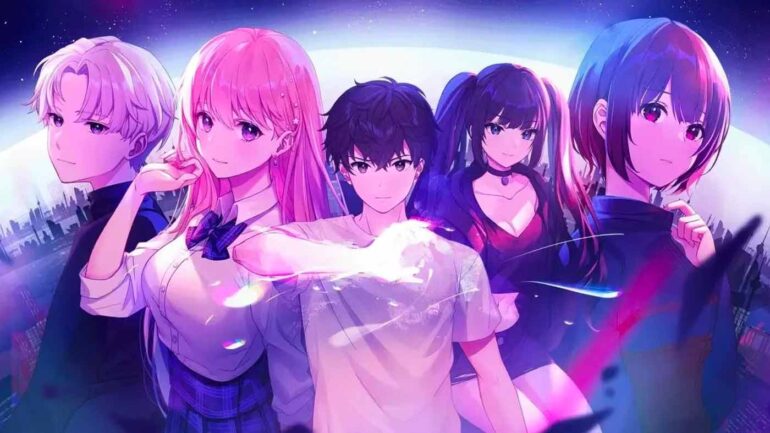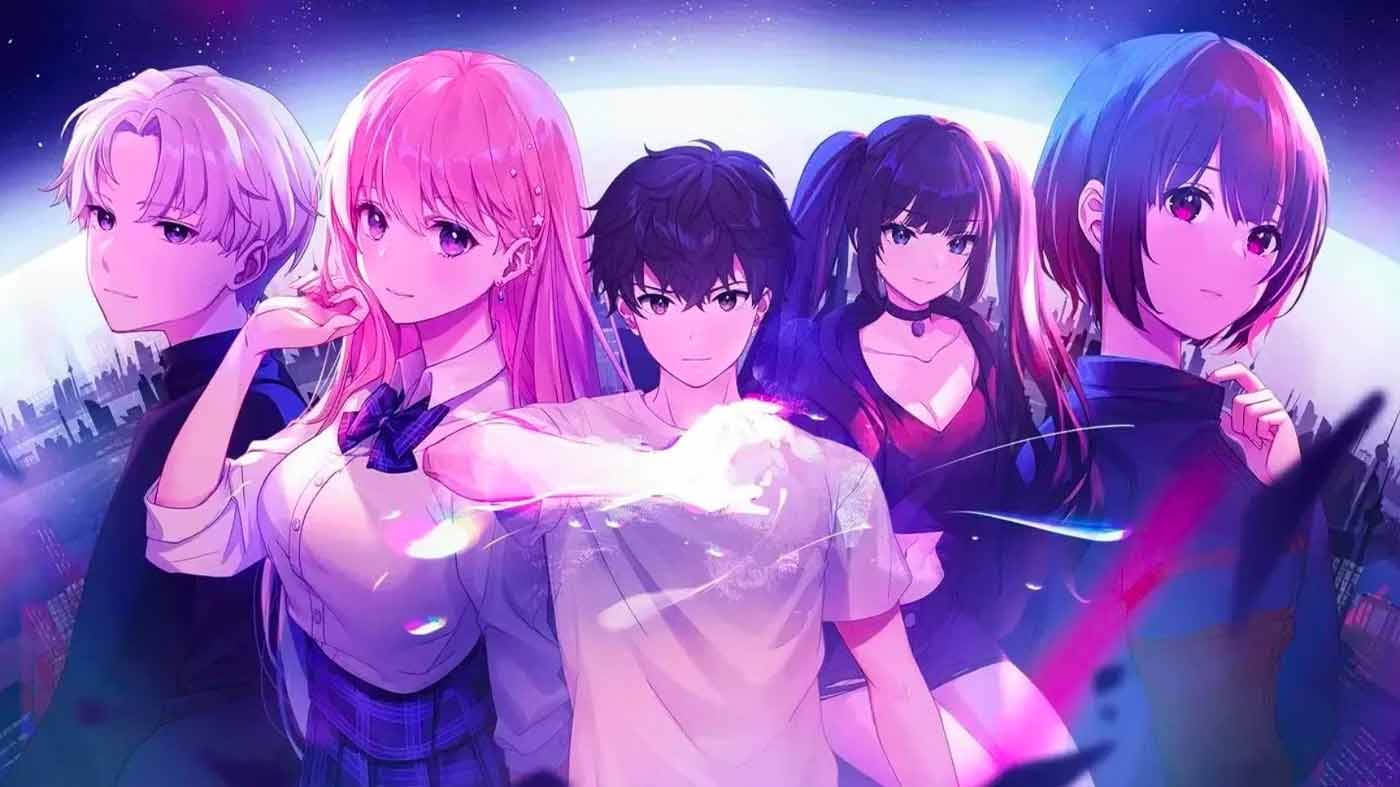For a game with a seemingly endless supply of porn jokes, Eternights is surprisingly sweet. Coming from the independent Studio Sai, Eternights is a scale relative but ambitious swing at the Persona-like. The easiest way to define the Atlus-led subgenre would be to cram a bunch of quirky teens into a high-stakes situation that links their social interactions to their combat abilities and see what happens. It has endless potential and it’s not all that surprising to finally see smaller studios attempt to recreate it, but Eternights isn’t content with a simple emulation. Instead, it layers its earnest (and incredibly horny) social elements with a robust, real time combat system, injecting some freshness into the formula. It also, crucially, lets gay people exist.
Eternights is largely about the end of the world as God-like beings collide over the existential fate of humanity – but it opens with two mates shit talking each other’s tinder profiles. The player character, a self-named 18-year-old dude, is lamenting his dating inexperience with Chani, his lifelong bro and eager wingman, the two sharing an immediate and easy cadence. After a short introduction to the game’s visual novel dialogue choices and overarching tone, the two lads find themselves trapped in a bunker as their city is sliced up by a series of colossal, magical walls. This opening tears through table setting, almost immediately demanding you get on board with its supernatural premise, the protagonist’s new mystical sword arm, and the introduction of the third primary character, pop-star Yuna.
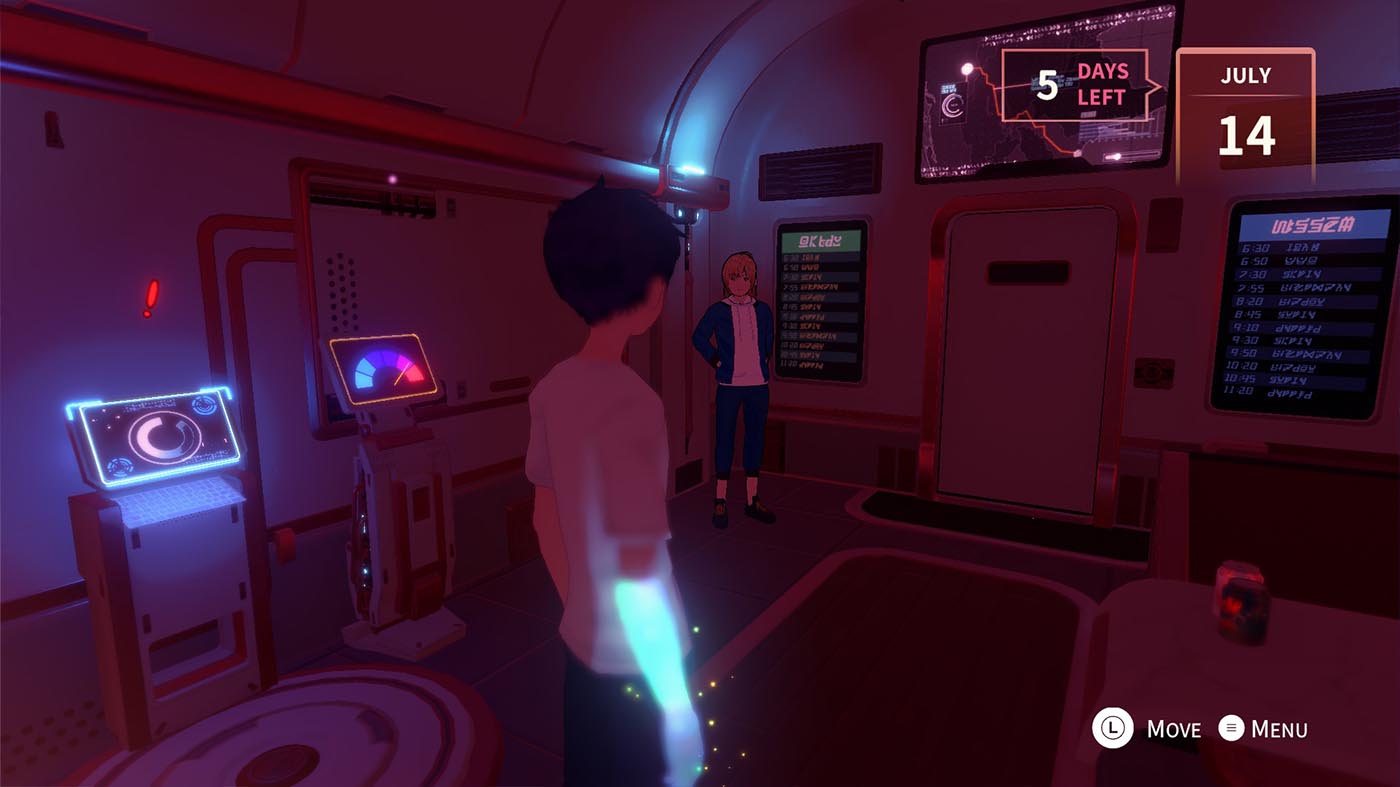
It’s not poorly done, just a little breakneck when also trying to parse the profoundly sweaty vibes the game gives off around its young adult shenanigans. These are explicitly sexual characters, often stumbling on the line of sexualised, but almost always straightening back up with some decent writing or emotionally resonant story beat. It’s not going to be for everyone, but I can’t deny the kind of dumb shit I was thinking at 18 and to see these character’s perform exaggerated versions of those thoughts wasn’t entirely without charm. All said there are four other party members you’ll recruit over the course of the game’s roughly 10–15-hour campaign, three women and one other guy, all romanceable and all sporting their own backstories and gameplay mechanics. To break those newly erected walls, the gang will have to ride a beefed-up rail train through the city, taking each calendar day and night to hang out, work on themselves, and eventually venture into dungeons.
Eternights’ ensemble is a likeable bunch of archetypes, no single characterisation much to write home about but collectively an endearing cast all the same. The playable character is a bit of a blank slate, his personality and tone decided during conversations from a small range of dialogue choices that in turn lean him toward several potential personality types. My guy, Knox, ended up being a sensitive type who would often opt for acceptance with a dash of confidence about his situation. Which was fine, until the endgame came around and I needed a higher confidence level to access the final dates with my chosen romance. Fortunately, the game leaves time for some confidence training with your best mate, but it was a shame to see my natural leanings lock me out of certain options organically.

Your day to day on the horny express is broken up into several activities, all of which you can freely choose from but each taking up a portion of the day. The headliner is the social interactions, seen here as choosing to “spend time” with a character of your choice, but the crew is also your gateway to training and scavenging missions. Spending time with people takes many forms, each character’s ideal “date” representative of their personalities and proclivities. Sia, the science geek, would often ask to observe me in combat, her love language being that of cold numbers and charts; Yuna, Eternights’ obvious favourite choice, accompanied me to an old high school to talk about her life in the spotlight; Yohan, my obvious favourite choice, would visit me in my dreams and we’d talk about trauma responses while chasing ethereal butterflies. And yeah, that last one is a little wild, but Eternights does all of this with the same confidence, no situation or interaction too silly to impact its stride.
Nothing you do is time wasted in Eternights, every mechanical engagement rewarding you with tangible progress and deeper social interactions. Characters can offer the protagonist training sessions, short and simple minigames that grant boosts to certain social levels or social currency to be spent on the game’s skill trees. You can also sneak out at night with someone to loot nearby locations for essentials like towels and fresh coffee, these excursions yielding similar rewards and strong interpersonal connections. It’s a lean and refined core loop that gives you direct control over your combat potential and romantic possibilities while showcasing the game’s warm character writing and vibes.
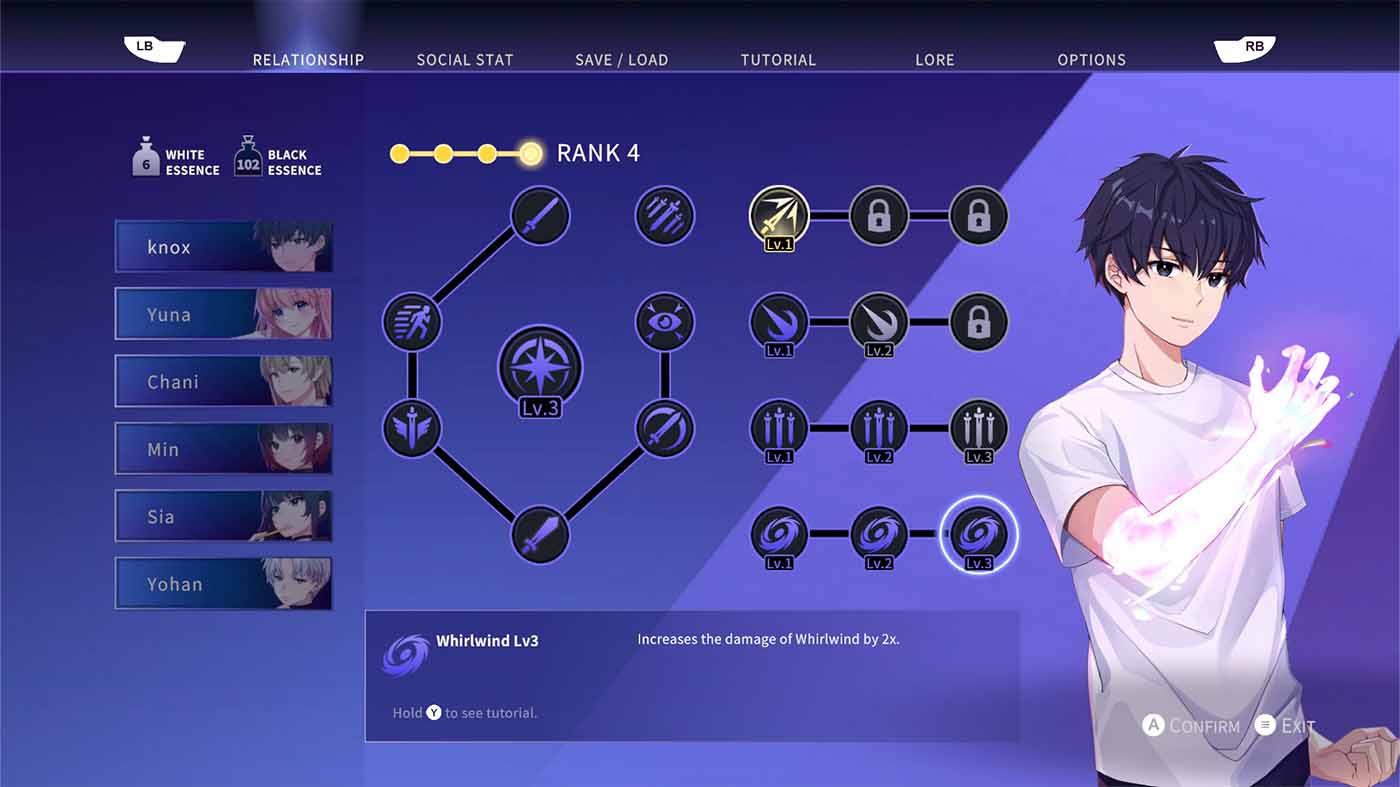
Making love not war is a nice enough adage, but Eternights sports a surprisingly weighty real-time combat system to balance its social systems. Combat is all about momentum, building from your basic button mashing attack with Bayonetta style timed dodges, QTE-driven special moves, and a whole subclass of unique attacks and support abilities. If you land enough hits in a row, you’ll have access to a simple finisher move or a super-powered elemental blow that utilises the unique powers of your crew with the left trigger and a series of QTEs. The use of hit stop makes even the smallest attack feel mighty, a stylistic choice that has great effect on the experience. Eternights slowly feeds you increasingly powerful mechanics too, ensuring you’ll always have a cool new toy to play with as the plot progresses. Using your social interactions to unlock stronger skills feels natural and makes taking these characters into combat even more satisfying.
The gang will need to contend with a handful of dungeons throughout the game, each an escalating gauntlet of combat and puzzle-solving. These multileveled event scenarios are plot heavy and often quite cinematic, housing fully animated cutscenes and creative level design along with boss encounters that test your combat proficiency. The puzzles are a tad goofy but fun enough, often repeated simple floor pattern recognition, sliding blocks, and even a late-game run that saw me jot down numbers on pen and paper to make life easier. You’re more likely to hit combat rooms and large-scale encounters though, and Eternights has a genuinely fantastic grasp on enemy aesthetics and design, leaning into body horror in fun ways. Some encounters can get a little much, often descending into button-mashing to get through it, but the strength of the combat and overall visuals mostly mask this.
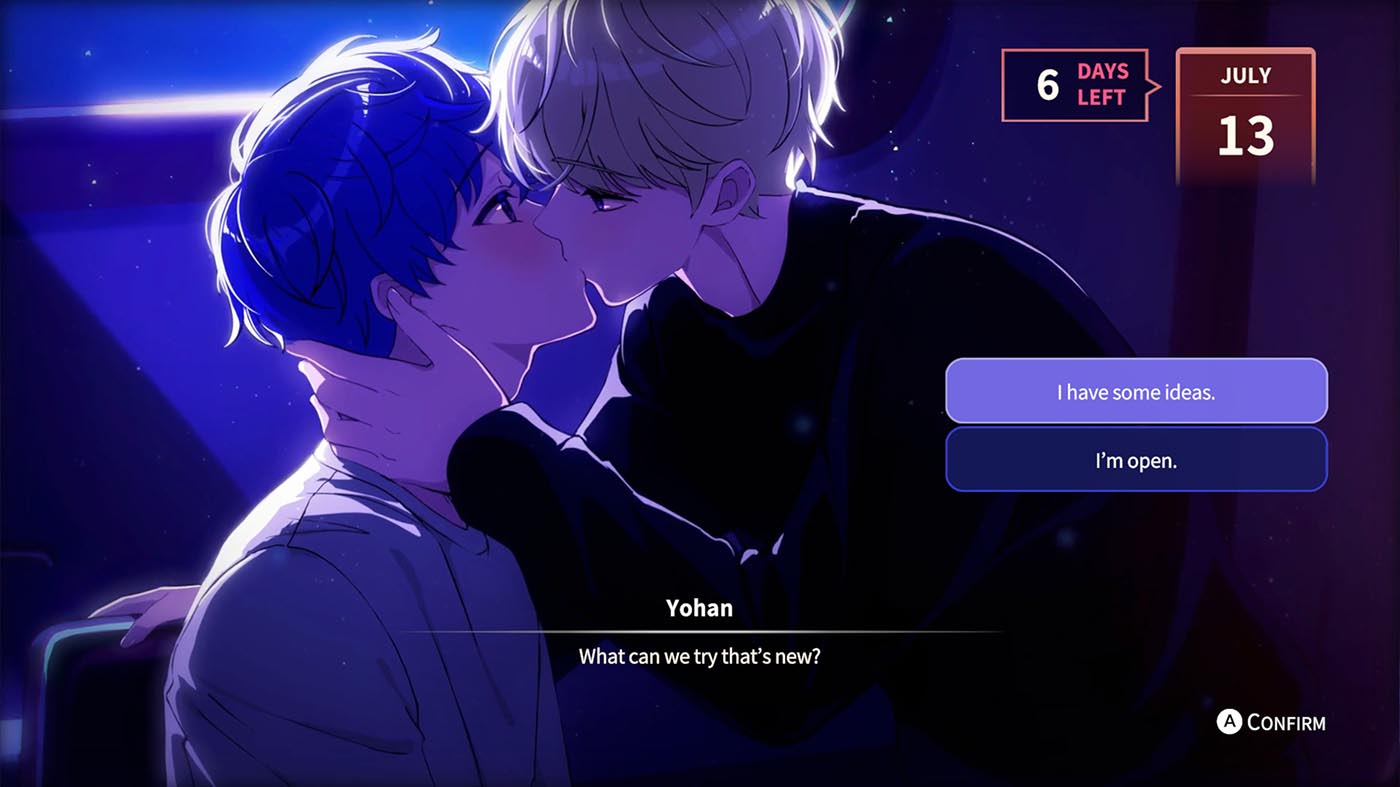
There’s a dash of Suda51-adjacent design philosophy in here, a strange and exaggerated melding of explicitly gamey mechanics to strengthen combat and its cinematic potential. It all locks into place with the game’s strong art-direction and animation fidelity. There are shortcuts you’ll need to allow for; major moments will often cut to black and explain something in plain text, no doubt a budget limitation you can meet halfway if you’re willing. But Eternights is frequently beautiful too, with expressive designs, sharp lighting, and a broad understanding of the more pleasing visual trappings of the genre and anime writ large. And while the writing can sometimes veer a little off-course, the voice work is stellar and always grounds these characters in the game’s unexpectedly sad tale.
There’s also Studio Sai’s decision to actively include queer romance in the game, something Atlus with its years of massive success and growth has still been unwilling to do. This is a genre predicated on the fundamentals of the human experience, Eternights smartly recognising that that experience comes in many forms. Yohan is as fleshed out as any of the heterosexual romance options in the game, showing up a little later than I’d have liked but a substantial portion of the second and third act is played with him in the team.
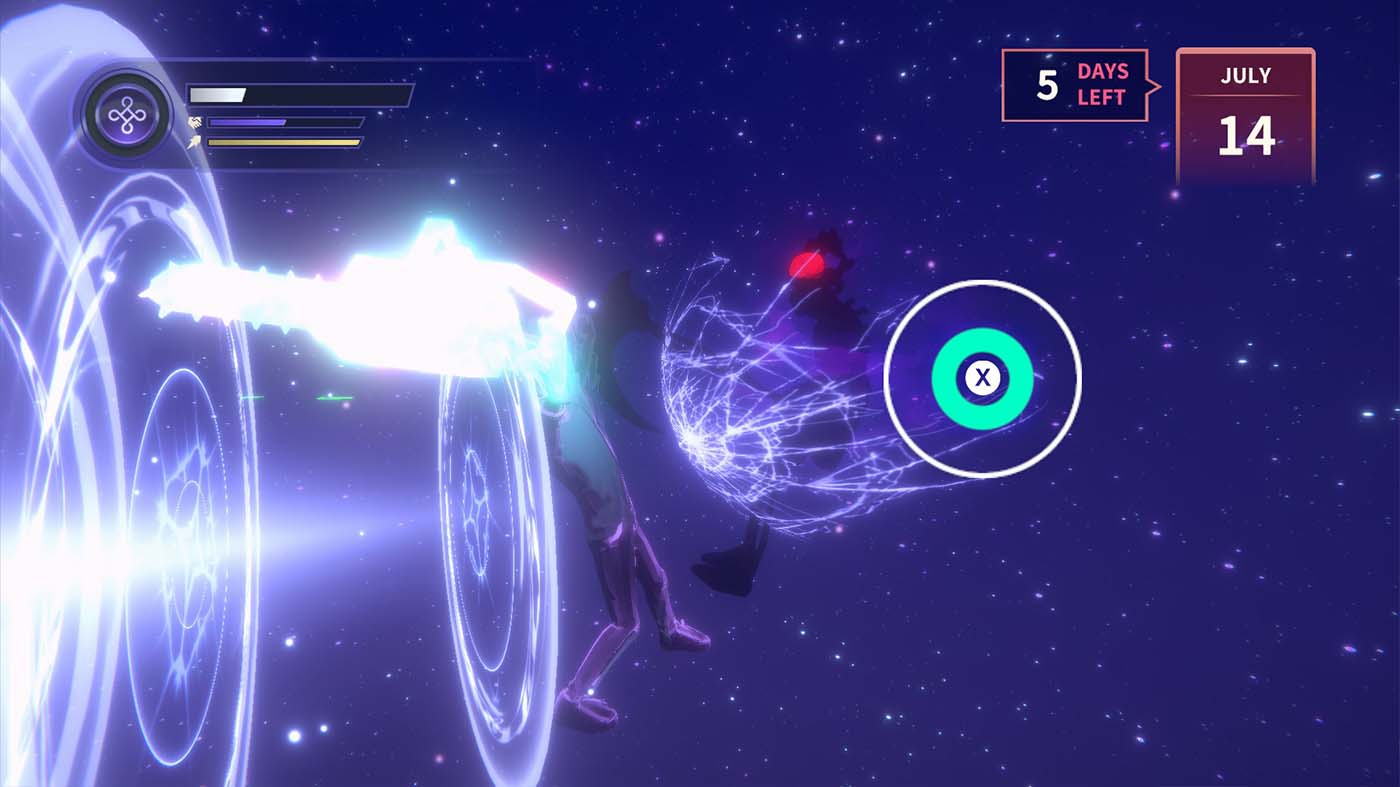
There are no jokes made at your expense for romancing him, no stilted subplots of unacceptance or half-arsed dates either, Yohan is a fully formed character and your story with him is profoundly moving at times. It’s not perfect; the inclusion of just one option is unbalanced and the game’s pacing still favours its women (all of whom I enjoyed but would have killed for a friend-zone button), but the ability to be gay in a genre so thoroughly alienating to me was a marvel. It was also emblematic of Eternights as a whole; a little uneven and requiring some good faith on the part of the player, but if you’re willing to get on board, this train ride will take you to some very cool places.


